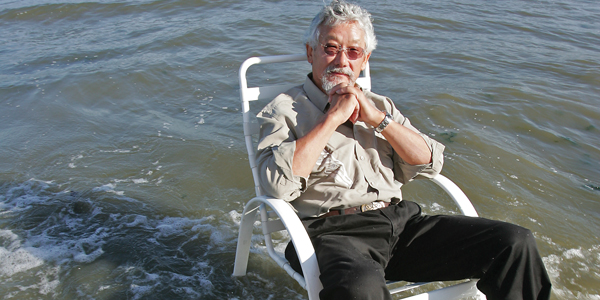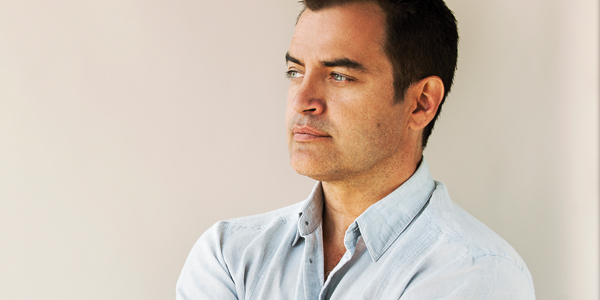I received an email a couple of weeks ago containing the generous invitation to write an article about passion and its association with success. Passion is an element in my personal and professional success, so I was keen to explore this topic.
I began by asking other people about what the word passion meant to them. I was curious to find out how they thought it related to success, but to my surprise, I was rarely able to get that far. For some reason, my conversations were stilted; it seemed as though passion is a loaded word that can cause discomfort.
Some people don’t think they carry the “passion” gene. I learned there are people, even successful ones, who are concerned about their ability to live up to its definition. The word passion has a high-energy association and some of us wonder if we truly have it; or if we’re the ones who lack it.
So what is passion? What is this thing we read about so often?
Is passion the energy of desire? Or is it something more? Is it something that pushes us beyond our limitations, filling us with boundless enthusiasm? How does passion relate to success? Can you have success without passion? These are the questions I pondered.
I do know this: It’s possible to set a goal and successfully achieve it without being passionate about it. It’s not much fun, but the job gets done. So success is possible without passion.
But without passion, making your way over a small hill can feel like trying to summit Mount Everest. Conversely, with a dose of passion, even the greatest challenges can seem as easy as coasting downhill on your bicycle. Of course, who would ever want to climb a mountain unless they felt enormous passion to do it? Can you imagine anyone putting in the time, effort, and commitment required to climb the tallest mountain in the world without feeling some sense of passion? Why bother?
When passion is mixed into the equation, we’re able to stir up a sense of boundless enthusiasm while we tirelessly pursue our goal.
Passion is a very individual experience. Just because other people may not share your passion for a particular thing doesn’t mean it lacks merit. People can be passionate about the smallest or largest of things or causes. Passion has no parameters.
The source of passion is found in our “reasons why”. Without knowing our reasons why we are attempting to do something, we will rarely gain the energy required to accomplish or enjoy it.
So you want to earn a lot of money. Ask yourself “Why?” To enjoy the things that money affords you? An iPod? A car? A trip? Or to ensure your family’s security? Perhaps it is to prove to your father/mother that they were wrong about you? (This is SO me. Ha! Thanks, Dad!)
So you want to run a marathon. Why? To increase your physical health? To prolong your life and die healthy? To enjoy your time outdoors while training? To brag to your friends? All these are valid reasons why we do what we do.
Whatever it is, find the “why” and you will be able to find the wellspring of your passion
.
Tony Robbins explains that the energy required to achieve a goal (some may call this energy “passion”) comes from satisfying one or more of the basic human needs of:
- love and connection
- certainty
- variety
- significance
- growth and contribution
The more of these needs that are met by the achievement of a certain goal, the more passion you’ll feel for making it happen. The more aware we are of our reasons “why” we want to achieve a goal, the stronger the passion and chance for success.
Yet passion does take some maintenance. Passion can dissipate over time. This dissipation usually happens to me when I get tired or run into a number of challenges I was not anticipating. When I lose the energy and excitement needed to make things happen, I step back and examine the reason why. When did I last evaluate my “reasons why” for choosing this path? Have I not taken time to reflect on all that has been accomplished so far? Perhaps it’s simply time for a holiday to get away from the challenge for a while and gain a new perspective.
It’s up to you to protect your passion. A review and a rest can revive your energy and excitement. And never discount those little victories.
How do you know you have passion for something if you can’t really feel it? I’ve concocted a “passion” quiz to help you uncover the signs that point to a passionate engagement in something. You’re likely to have passion if you have a:
- Strong curiosity that keeps you looking for ways to learn more about it, or a continual desire to get better at it.
- Sense of excitement or energy whenever you do it.
- Need to seek out others who share your interest, so you can talk about it.
- Tendency to literally dream about it.
- Secret fantasy where you someday actually get to the top of your game and take your place among others who have succeeded in it.
- Sense of loss of feeling of missing something when you are not doing it.
If any of these situations ring true for you, you may be more passionate than you realize. Use this knowledge to keep moving forward in your efforts. You don’t have to feel an earth-shaking, heart-quaking, spark-making energy shooting through you every minute of the day. You just have to know that you need to keep making progress on your goal, whatever it is, in order to feel happy. This is passion.






